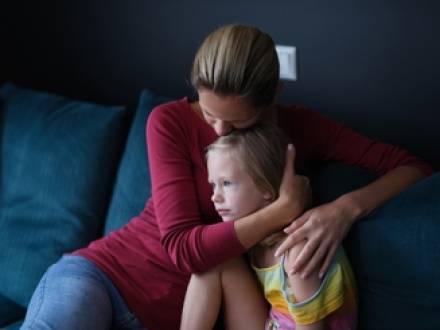 630-393-3111
630-393-3111
4200 Cantera Drive, Suite 200 | Warrenville, IL 60555
Recent Blog Posts
Reasons Why Post-Decree Support Modifications Get Rejected
 After a divorce, you might come to realize that a judge’s order simply is not working. Petitioning for a modification of a court order can give you some relief from child support and alimony obligations. However, a judge will not approve a change to a court order without good cause. An Illinois family law attorney can help you petition for post-decree modification, providing you with sound legal advice and representation.
After a divorce, you might come to realize that a judge’s order simply is not working. Petitioning for a modification of a court order can give you some relief from child support and alimony obligations. However, a judge will not approve a change to a court order without good cause. An Illinois family law attorney can help you petition for post-decree modification, providing you with sound legal advice and representation.
Attorney Michael Calabrese of Calabrese Associates, P.C. has 30 years of experience handling divorce and family law issues. Our firm can advocate for a modification that better suits your changed circumstances.
No Major Change
To modify an order of child support or alimony, you have to demonstrate that there has been a substantial change to your circumstances. A judge will not grant a modification of an order on a whim. Factors like stress or unhappiness with the order will not be considered in the court.
When Is Adult Guardianship Needed?
 Petitioning for guardianship of an adult can be an intensive process. When an adult can no longer manage his or her estate, the court may appoint a guardian to address the adult’s daily care and handle his or her assets. However, a judge will only approve a petition for guardianship if there is a clear need for intervention.
Petitioning for guardianship of an adult can be an intensive process. When an adult can no longer manage his or her estate, the court may appoint a guardian to address the adult’s daily care and handle his or her assets. However, a judge will only approve a petition for guardianship if there is a clear need for intervention.
If you are looking to assume guardianship over an adult, an Illinois family law attorney can provide you with legal advice and strong representation. At Calabrese Associates, P.C., we have the skills and experience to properly advocate for you in a guardianship hearing. We can compile and present evidence to establish why an order of guardianship is necessary.
Health Reasons for Guardianship
A petition for adult guardianship might be granted for health reasons. Note that an elderly adult or an adult with a developmental disability can still be considered independent. You must prove in court that the adult’s health conditions prevent him or her from managing personal or financial affairs.
The Basics of Prenuptial Agreements in Illinois
 Studies have shown that anywhere from 40 to 50 percent of marriages in the United States end in divorce. Many people view prenuptial agreements as cynical, treating them as a prediction for the end of a marriage. However, this is not necessarily true. Even if you plan to stay married until death do you part, having a plan in place does not have to drive a wedge between you and your spouse. A prenuptial or postnuptial agreement can help you account for any possibility.
Studies have shown that anywhere from 40 to 50 percent of marriages in the United States end in divorce. Many people view prenuptial agreements as cynical, treating them as a prediction for the end of a marriage. However, this is not necessarily true. Even if you plan to stay married until death do you part, having a plan in place does not have to drive a wedge between you and your spouse. A prenuptial or postnuptial agreement can help you account for any possibility.
If you have never drafted a prenuptial agreement before, the process can be intimidating. A family law attorney at Calabrese Associates, P.C. can walk you through the steps of drafting the document. We will make sure your premarital agreement is legally sound and enforceable in a court of law.
Dos and Don’ts of Mediation in Illinois
 In Illinois, many judges will advise or even order a divorcing couple to go through mediation instead of court. Mediation provides couples with a private space to discuss their issues in a session overseen by an unbiased third party. Compared to litigation, mediation can be a less time-consuming, costly process, provided that both parties go in with good faith.
In Illinois, many judges will advise or even order a divorcing couple to go through mediation instead of court. Mediation provides couples with a private space to discuss their issues in a session overseen by an unbiased third party. Compared to litigation, mediation can be a less time-consuming, costly process, provided that both parties go in with good faith.
Whether you have been ordered to attend mediation or you and your spouse attend a session of your own volition, you should know what to expect beforehand. A Naperville, IL family law attorney at Calabrese Associates, P.C. can help you prepare for mediation and how to effectively speak up for yourself.
DO: Choose a Comfortable Space
Mediation is best conducted in a place where you feel comfortable speaking your mind. If the marital home feels too tense, you can always request a neutral space like a cafe to conduct the negotiations. A courthouse or office space can also serve as a professional environment away from distracting elements or prying eyes.
Getting a Divorce in Illinois When Your Spouse is in Jail
 If your spouse ends up arrested and sentenced to prison for a criminal offense, you might be dealing with a lot of strong emotions at the same time. It is entirely understandable to feel heartbroken, betrayed, or even incensed, and sometimes, there is no other way to move forward but to get a divorce.
If your spouse ends up arrested and sentenced to prison for a criminal offense, you might be dealing with a lot of strong emotions at the same time. It is entirely understandable to feel heartbroken, betrayed, or even incensed, and sometimes, there is no other way to move forward but to get a divorce.
That being said, a divorce with a spouse behind bars can present unique challenges that you may not be comfortable handling alone. A DuPage County, IL family law attorney can help you finalize the dissolution of your marriage and give you closure during an especially traumatic time in your life. Attorney Michael J. Calabrese has previously served as a chair of the DuPage County Bar Association, and his experience allows him to navigate the most sensitive issues of family law.
Serving Papers
Like any other divorce, the process begins by serving your spouse with papers, providing him or her with formal notice of your intent to file for a dissolution of marriage. To make sure these papers reach your spouse behind bars, you will have to find your spouse’s inmate number via the state’s online posting from the Department of Corrections.
Should I Represent Myself in My Divorce?
 Although the oldest profession in the world probably does not bear discussion in polite company, the second-oldest profession is almost certainly the attorneys who kept the workers and the clients of the first oldest profession out of trouble. Because attorneys have such a long and storied reputation, many people are understandably suspicious of them and prefer to avoid using them when possible, even if it means foregoing the benefits of a lawyer and representing themselves.
Although the oldest profession in the world probably does not bear discussion in polite company, the second-oldest profession is almost certainly the attorneys who kept the workers and the clients of the first oldest profession out of trouble. Because attorneys have such a long and storied reputation, many people are understandably suspicious of them and prefer to avoid using them when possible, even if it means foregoing the benefits of a lawyer and representing themselves.
One of the most common areas of law that people try to represent themselves in is divorce and other areas of family law. While there is certainly no requirement to have an attorney representing you during your divorce, depending on your circumstances, not having an attorney at least review your case could be a very bad idea.
We are not just saying that because we are a law firm – most attorneys even know better than to represent themselves because the data shows people who retain experienced attorneys tend to get better outcomes from their divorce. To learn more about how our experienced Illinois divorce lawyer can help you, call us today.
When Should I Consider Guardianship for My Parents?
 As parents age, they often face physical or mental health challenges that might impact their ability to care for themselves or make important decisions. When this happens, guardianship can be an important legal tool to ensure a parent’s needs are met and his or her rights are protected.
As parents age, they often face physical or mental health challenges that might impact their ability to care for themselves or make important decisions. When this happens, guardianship can be an important legal tool to ensure a parent’s needs are met and his or her rights are protected.
Once guardianship is approved for someone, that person is considered a "ward." The extent to which a guardian is allowed to make decisions for a ward is determined by the court based on a thorough clinical evaluation and report. Understanding when guardianship may be necessary and how to obtain it in Illinois can help you navigate this challenging situation, and our Illinois family law attorneys are here to help.
When Is Guardianship Necessary?
Guardianship of an aging parent may become necessary when they are no longer capable of managing their personal or financial affairs due to age-related conditions such as:
Do I Have to Go to Mediation in My Illinois Divorce?
 Divorce mediation is often promoted as a cheaper and more peaceful option compared to traditional litigation. While mediation can help couples reach agreements on issues like child custody, property division, and spousal support, it is not the right solution for every situation.
Divorce mediation is often promoted as a cheaper and more peaceful option compared to traditional litigation. While mediation can help couples reach agreements on issues like child custody, property division, and spousal support, it is not the right solution for every situation.
In some cases, mediation can even make existing conflicts worse or put one party at a disadvantage. Below are some reasons why divorce mediation may not be appropriate and how an Illinois divorce attorney can help you navigate the process.
Situations Where Mediation May Not Work
History of Domestic Violence or Abuse
Mediation relies on both parties feeling safe and empowered to express their needs and negotiate fairly. However, in cases involving a history of domestic violence or abuse, the power dynamics are often imbalanced. For example, imagine a woman who suffered years of verbal and physical abuse during her marriage. In mediation, she may feel too intimidated to stand up for her rights, especially if her abuser attempts to manipulate or pressure her into unfavorable agreements.
What Can I Do if My Ex Always Shows Up Late to Visitation Exchanges?
 When parents share custody of their children, sticking to the agreed schedule for visitation exchanges is very important. If one parent is always late, it can disrupt plans, cause stress, and even affect the children’s well-being. Thankfully, Illinois law provides ways to handle this issue. A Naperville, IL family law attorney can help you find the best solution.
When parents share custody of their children, sticking to the agreed schedule for visitation exchanges is very important. If one parent is always late, it can disrupt plans, cause stress, and even affect the children’s well-being. Thankfully, Illinois law provides ways to handle this issue. A Naperville, IL family law attorney can help you find the best solution.
Why Timely Visitation Exchanges Matter
Late exchanges can create many problems for both parents and children. For example:
-
Children might miss activities, meals, or bedtime routines.
-
Parents may struggle to stick to their work or personal schedules.
-
Children could feel upset or confused if lateness happens often.
While occasional lateness is understandable, repeated tardiness can damage trust between co-parents and make the situation harder for everyone.
Can Cryptocurrency Be Used to Hide Marital Assets?
 In 2023, a New York housewife enlisted the help of a forensic accountant to track down half a million dollars her husband hid in Bitcoin prior to their divorce. A few months into the divorce, the wife became suspicious when it appeared her husband – who earned as much as $3 million per year – had very few assets. The woman, who had been married for over a decade, rightfully felt blindsided when she found out the truth.
In 2023, a New York housewife enlisted the help of a forensic accountant to track down half a million dollars her husband hid in Bitcoin prior to their divorce. A few months into the divorce, the wife became suspicious when it appeared her husband – who earned as much as $3 million per year – had very few assets. The woman, who had been married for over a decade, rightfully felt blindsided when she found out the truth.
Since the couple had never really discussed cryptocurrency or making investments, the wife had no idea her husband was stashing money to keep her from getting her half of the marital assets during the divorce. A 2022 NBC news poll discovered that about 21 percent of American adults have invested in, used, or traded cryptocurrency. Men between the ages of 18 and 49 took the top spot for cryptocurrency investors.
Many divorce attorneys would agree that the law is simply not keeping up with digital assets when it comes to dividing marital assets during divorce. In fact, some attorneys are just beginning to add cryptocurrency to requests for the production of documents during divorce discovery. If there is any silver lining to spouses hiding assets in cryptocurrency, it would be the increase in forensic investigator jobs created to track down these assets during a divorce.


 4200 Cantera Drive, Suite 200, Warrenville, IL 60555
4200 Cantera Drive, Suite 200, Warrenville, IL 60555 630-393-3111
630-393-3111





